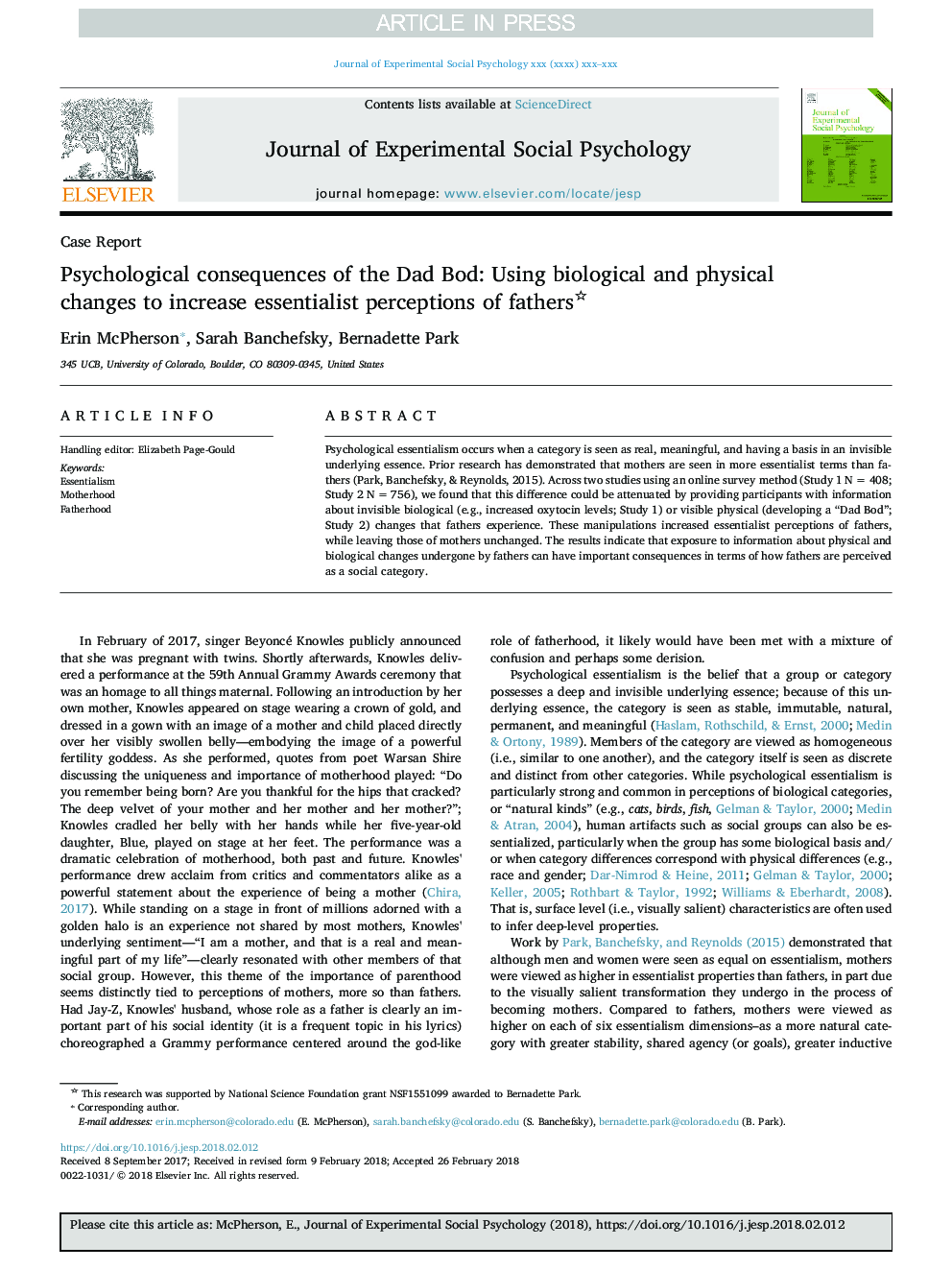| Article ID | Journal | Published Year | Pages | File Type |
|---|---|---|---|---|
| 7324232 | Journal of Experimental Social Psychology | 2018 | 7 Pages |
Abstract
Psychological essentialism occurs when a category is seen as real, meaningful, and having a basis in an invisible underlying essence. Prior research has demonstrated that mothers are seen in more essentialist terms than fathers (Park, Banchefsky, & Reynolds, 2015). Across two studies using an online survey method (Study 1 Nâ¯=â¯408; Study 2 Nâ¯=â¯756), we found that this difference could be attenuated by providing participants with information about invisible biological (e.g., increased oxytocin levels; Study 1) or visible physical (developing a “Dad Bod”; Study 2) changes that fathers experience. These manipulations increased essentialist perceptions of fathers, while leaving those of mothers unchanged. The results indicate that exposure to information about physical and biological changes undergone by fathers can have important consequences in terms of how fathers are perceived as a social category.
Keywords
Related Topics
Life Sciences
Neuroscience
Behavioral Neuroscience
Authors
Erin McPherson, Sarah Banchefsky, Bernadette Park,
